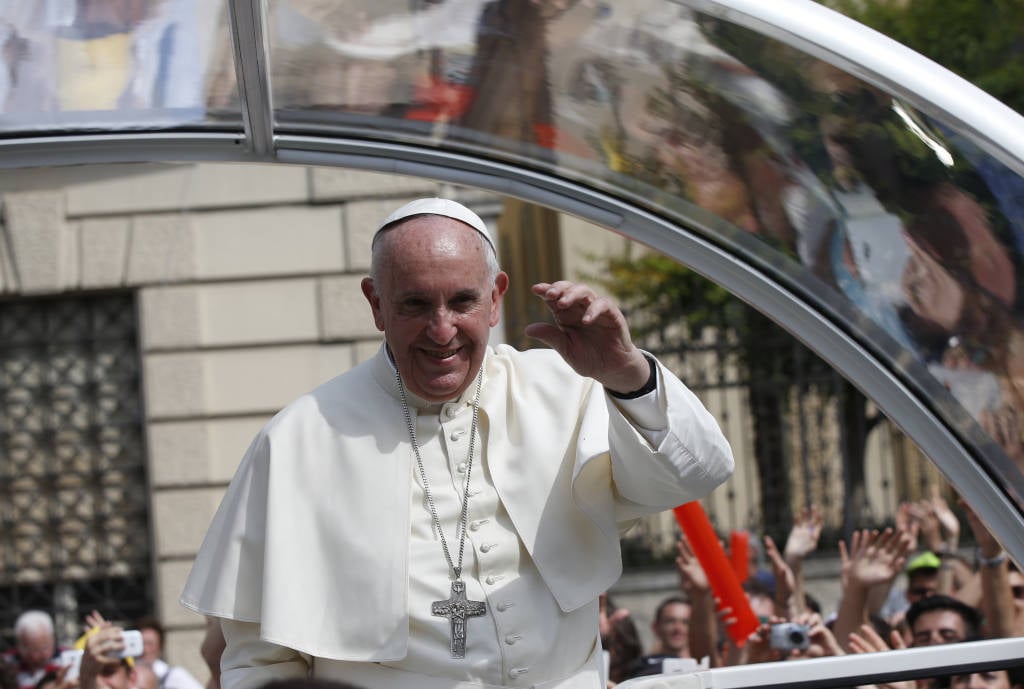In impromptu remarks about genocide to a young crowd, Pope Francis blamed the “great powers” of the world during WWII who stood by as Jews and others were murdered.
Pope Francis on Sunday denounced what he calls the “great powers” of the world for failing to act when there was intelligence indicating Jews, Christians, homosexuals and others were being transported to death camps in Europe during World War II.
He also decried the deaths of Christians in concentration camps in Russia under the Stalin dictatorship, which followed the war.
The pope’s harsh assessments came in impromptu remarks during his visit to Turin, northern Italy, when he told young people he understands how they find it hard to trust the world.
“The great powers had photographs of the railway routes that the trains took to the concentration camps, like Auschwitz, to kill the Jews, and also the Christians, and also the Roma, also the homosexuals,” Francis said, citing the death camp in Poland. “Tell me, why didn’t they bomb” those railroad routes?
Referring to concentration camps that came “a little later” in Russia, Francis wondered aloud: “How many Christians suffered, were killed” there?
Lamenting the cynicism of world players in the 1930s and 1940s, Francis said: “the great powers divided up Europe like a cake.”
He also cited what he called the “great tragedy of Armenia” in the last century. “So many died. I don’t know the figure, more than a million, certainly. But where were the great powers then? They were looking the other way,” the pope said.
In April, the pope angered Turkey when he referred to the slaughter of Armenians by Turkish Ottomans as “genocide.”
In today’s world, he told the young people: “Everything is done for money.” He criticized those advocating peace while manufacturing or selling arms.
Francis reiterated his view that conflicts in the world today are tantamount to “a Third World War in segments.”
By: Frances D’Emilio, AP
Do You Love Israel? Make a Donation - Show Your Support!
Donate to vital charities that help protect Israeli citizens and inspire millions around the world to support Israel too!
Now more than ever, Israel needs your help to fight and win the war -- including on the battlefield of public opinion.
Antisemitism, anti-Israel bias and boycotts are out of control. Israel's enemies are inciting terror and violence against innocent Israelis and Jews around the world. Help us fight back!

